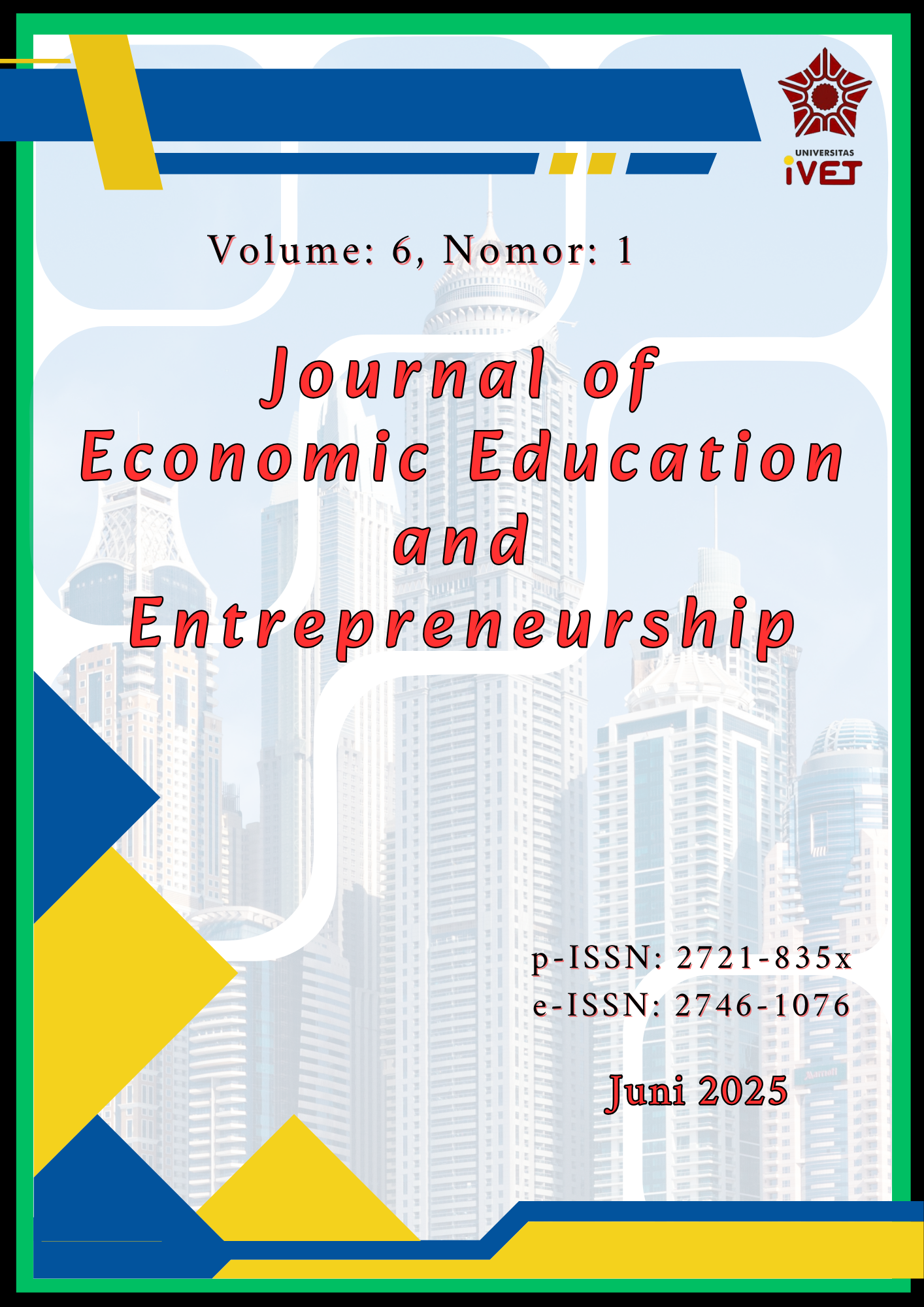Persepsi Peserta Pertukaran Mahasiswa Merdeka Tentang Pelaksanaan Program Pertukaran Mahasiswa Merdeka MKBM
Abstract
This article aims to determine the perceptions of the 2nd batch of Independent Student Exchange (PMM) participants regarding the implementation of PMM MBKM; as well as the obstacles and solutions faced by PMM class 2 participants. This type of research uses descriptive methods with a qualitative approach. The research was conducted with 9 informants consisting of participants and Ivet University officials. The data analysis technique uses triangulation from the results of interviews, questionnaires, observation and documentation. The research results showed that: 1. In the preparation and introduction phase of the program, participants found out through digital media and understood the definition and concept of the program well, participants thought that the socialization stage was not optimal; 2. Recruitment phase, participants think that the preparation of files and use of the application is done well and is easy to do; 3. Implementation phase, a. The student's academic learning process is carried out in a hybrid manner by following academic rules assisted by the PIC, discussing with the Head of Study Program in taking courses, taking courses online at the Home University due to differences in credit weights, the main assessment system is attendance, the student quota for each course is fulfilled as much as 25-30 students, b. Nusantara Module activities are carried out by visiting regional tourist locations, inspirational activities presenting community leaders, reflection activities making video projects and writing impressions and messages, social contribution activities by helping local communities in solving problems; 4. Follow-up phase, participants do not fully know the conversion process, participants' perceptions are good and they recommend the program to other students. Obstacles and solutions for implementing PMM 2, namely socialization which will change the pattern and conversion flow, will be addressed with the Chancellor's Decree and looking for alternative solutions.
Downloads
References
Abdul Wahid., Siska Indriani., Siti Ubaidah. 2020. Pengaruh Persepsi Siswa Tentang Pembelajaran
Matematikan Terhadap Prestasi Belajar Matematika Siswa Di Madrasah Tsanawiyah An-Nur Tangkit. Skripsi. Jambi : UIN Sulthan Thaha Saifuddin.
C.George Boeree. 2017. General Psychology : Psikologi Kepribadian, Persepsi, Kognisi, Emosi, dan
Perilaku.Yogyakarta : Prismasophie.
Dede Yayat. 2019. Pengaruh Pendidikan Kewirausahaan Dan Keterampilan Usaha Terhadap Motivasi
Berwirausaha. Skripsi. Bandung : Universitas Komputer Indonesia.
Fitrianingsih Dwi P. 2010. Pengaruh Persepsi Siswa Mengenai Pelaksanaan Pembelajaran Dan Tingkat
Intelegensi Siswa Terhadap Prestasi Belajar Ekonomi Pada Siswa Kelas VII Regular SMP Negeri 1 Salaman Magelang Tahun Pelajaran 2009/2010. Skripsi. Universitas Negeri Yogyakarta.
Muhammad Saaiq. 2016. Pengaruh Persepsi Siswa Tentang Pelaksanaan Proses Belajar Mengajar Dan
Motivasi Belajar Terhadap Prestasi Belajar Siswa. Skripsi. Yogyakarta : Fakultas Teknik Universitas Negeri Yogyakarta.
Ricard E. Mayer. (2004). Pembelajaran Dan Instrukti. New York : Cambridge University
Press. https://chat.openai.com/chat/4779eee1-075e-4d80-9d84-7582426e73d8. (diunduh 15 April 2023).
Sarlito. Sarwoto. W. 2012. Psikologi Persepsi & Desain Informasi. Yogyakarta : Media Akademi. Slameto.
2003. Pengertian Belajar Menurut Para Ahli & Secara Umum [lengakap].
https://www.zonareferensi.com/pengertian-belajar/ (diunduh 10 April 2023).
Sudarsono. 2016. Pengertian Persepsi Menurut Para Ahli.
https://maglearning.id/2021/11/06/pengertian-persepsi-menurut-para-ahli/?amp. (diunduh 10 April 2023).
Sugiyono. 2019. Metode Penelitian Kuantitatif, Kualitatif, dan R&D. Bandung : Alfabeta
Zainal Arifin. 2012. Evaluasi Pembelajaran. Bandung : PT. Remaja Rosdakarya Offset.


